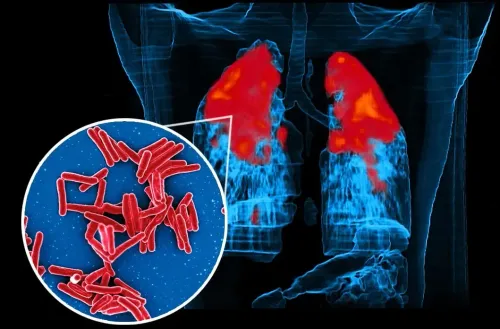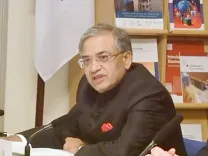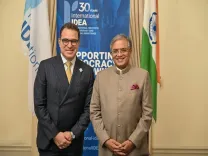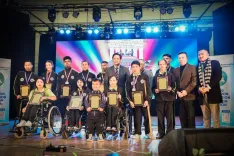Collaboration Between Academia and Industry Crucial for Standard Development and Economic Advancement: BIS
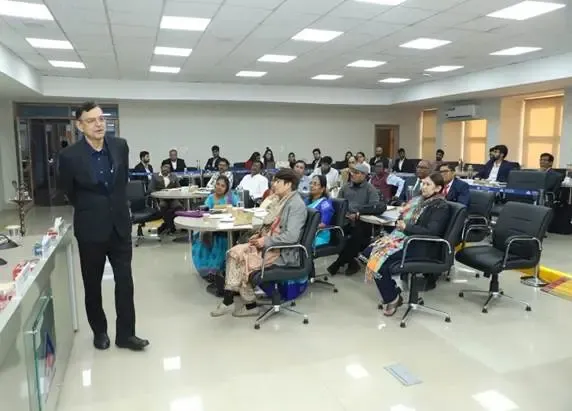
Synopsis
Key Takeaways
- Collaboration between academia and industry is crucial for innovation.
- Strengthening India's healthcare manufacturing base is essential.
- Experts should engage in BIS technical committees.
- Standards must be timely and scientifically advanced.
- Awareness of standards in academia is vital.
New Delhi, Feb 4 (NationPress) The emphasis is on fostering collaboration between academia and industry to create standards that fuel innovation and drive economic growth in India, stated Pramod Kumar Tiwari, Director General of the Bureau of Indian Standards (BIS) on Tuesday.
He addressed attendees at the Annual Convention focused on the healthcare sector, organized by BIS under the Department of Consumer Affairs. This event was tailored for Deans and Heads of Departments from academic and research institutions at the National Institute of Training for Standardisation in Noida.
“Strengthening India's manufacturing capabilities in the healthcare sector is vital,” Tiwari remarked, while also shedding light on various initiatives by BIS, such as orientation programs for institutions and annual conventions across multiple disciplines.
He encouraged experts to become actively involved in BIS technical committees, participate in research and development initiatives, and incorporate standards into engineering curricula to foster enhanced learning.
Addressing the challenges posed by a limited manufacturing base and constrained research capabilities, he stressed the importance of aligning with the Prime Minister’s vision of achieving global recognition for Indian standards.
BIS is committed to enhancing the applicability of Indian Standards, which should not only cater to industries or consumer groups but also hold technical relevance for academicians. Engaging with educational institutions could raise awareness of standards within the academic and research landscape.
“Standards must be both scientifically advanced and timely to meet current needs,” stated Chandan Bahl, Scientist-G and DDG (International Relations). He acknowledged that academia and research organizations are crucial stakeholders possessing the latest technical expertise in their fields.
Approximately 36 participants from 28 institutes attended the convention, which aimed to raise awareness about standardization in the healthcare and medical device sectors while exploring collaborative opportunities with academic and research bodies to bolster BIS's standardization efforts in this domain.





